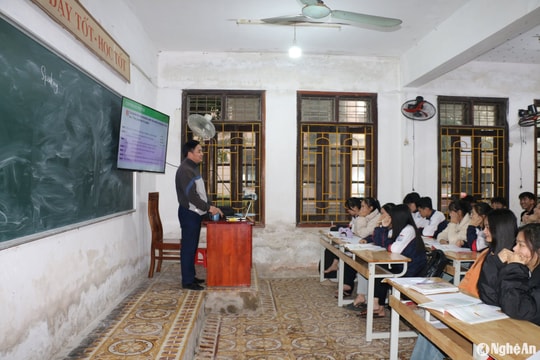Testing the new general education program: Many problems need to be resolved
“Some lessons are still heavy on knowledge, the capacity is not suitable, teachers are afraid of innovation... these are shortcomings that need to be overcome.”
Professor Nguyen Minh Thuyet, Editor-in-Chief of the new general education program, evaluated the program after piloting it.
Overloaded with too much knowledge
The pilot implementation of the new curriculum began on March 23 and ended on April 23, 2018. The program was applied to 48 schools in 6 provinces across the country (18 primary schools, 18 secondary schools and 12 high schools), with a total of 1,482 teachers participating in teaching the program.
Regarding the experimental teaching results, according to Professor Nguyen Minh Thuyet, teachers and administrators of schools participating in the experiment all highly appreciated the advantages and prospects of the new general education program (CTGDPTM). The program of subjects has correctly identified the qualities and abilities that the subjects form and develop for students.
|
| In the new general education program, some lessons still focus heavily on equipment. knowledge. Illustration: PV |
However, Professor Nguyen Minh Thuyet also acknowledged that some requirements are still high compared to the students' level; the content of some experimental lessons is relatively difficult; some lessons are still heavy on knowledge provision; the capacity of some lessons is not suitable for the teaching time.
Arranging many knowledge units in a lesson does not create conditions for students to carry out activities of discovery, practice and apply knowledge to life.
"These are limitations and shortcomings that need to be seriously considered and resolutely overcome by each group of subject program authors in the coming time," said Professor Nguyen Minh Thuyet.
Facing another difficulty, Ms. Bui Thi Hong Hanh, Vice Principal of Vo Lao Primary School No. 1, Van Ban District, Lao Cai Province, shared: "After a month of experimenting with the new program, the school's teachers realized that there was a lot of new knowledge content but many lessons were difficult for students."
Besides, there are difficulties such as, a class that is too crowded will make it difficult to innovate methods for students. Schools in the city often encounter this difficulty. Therefore, for large classes, flexible handling methods can be applied.
Minh Ha Secondary School, Thach That District, Hanoi is an example of a large class. The school’s classrooms are quite large, so the teachers divided the students into 4 groups for discussion activities, with very positive results.
However, a class with a small number of students will operate more effectively than a class with many students. Besides, there are opinions that in the countryside, although the class is not as large as in the city, there are more difficulties in terms of material and equipment.
Regarding the feasibility of the program, Professor Nguyen Minh Thuyet said that most of the experimental lessons were exciting and innovative. Many teachers have applied well the method of organizing activities, empowering students, creating an enthusiastic and effective learning environment for students; and have boldly changed to suit local conditions.
However, Professor Nguyen Minh Thuyet also frankly admitted that some teachers have not changed their habit of simply imparting knowledge, so they have not created effective lessons in which each student can participate in activities to explore knowledge, practice skills and apply what they have learned to discover and solve problems in life appropriate to their age.
"Although some teachers organize students to work in groups, the way they work is still formal, not creating conditions for each student in the group to work, create their own products, and contribute to the overall work results" - Professor Nguyen Minh Thuyet assessed.
Also encountering a difficulty during the experiment, Ms. Ngo Thi Hong Lien, Vice Principal of Tay Ho High School, Hanoi shared: “At the school participating in the experimental program, there are 24 teachers teaching 12 subjects with 3,395 students. After the first lesson, some teachers complained that the content was difficult, the lesson was not as effective as expected, some teachers still had the habit of incorporating personal thoughts into the lesson, not having a firm grasp of the program.
However, after training and changing teaching methods, the lessons were more successful than expected. The new General Education Program was applied with a new method, students did not have any fear of learning. Experimental results showed that the new General Education Program reduced academic theory, increased practical knowledge, and solved students' problems.
Many teachers also believe that when implementing a new program, the teacher's capacity plays a very important role. Teaching hours are only successful when teachers have a firm grasp of the program content and can apply new teaching methods to organize students' learning activities.
After piloting the program, the next step is for the Drafting Board to complete the program and submit it to the Appraisal Council for review. After that, the Minister of Education and Training will officially sign the decision to issue the program and provide training on writing new textbooks. Professor Nguyen Minh Thuyet affirmed that the implementation of the new General Education Program will be on schedule, and by the 2020-2021 school year at the latest, it will be taught in grade 1./.

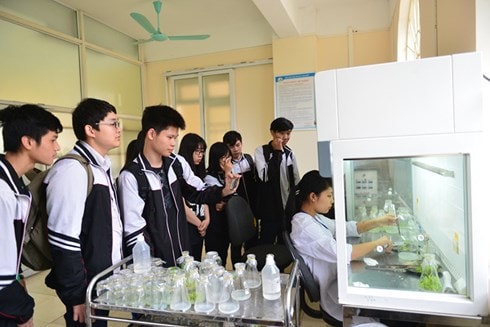
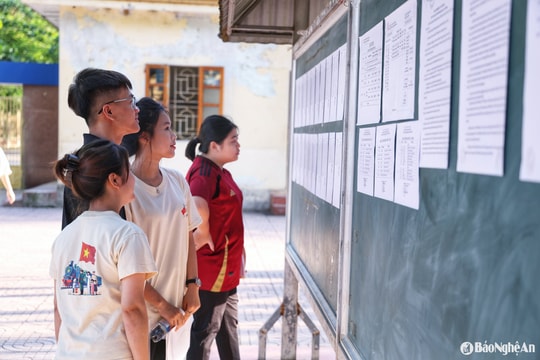
.jpg)
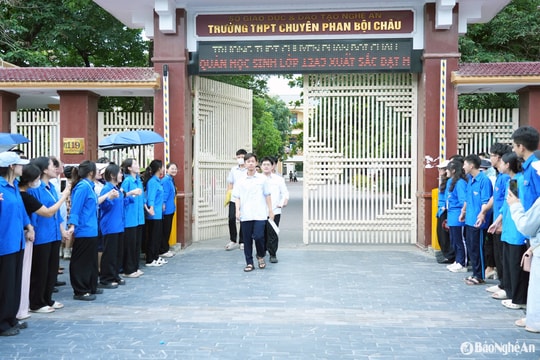
.jpg)
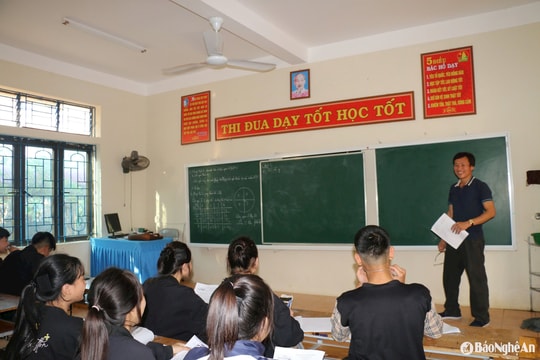
.jpg)
